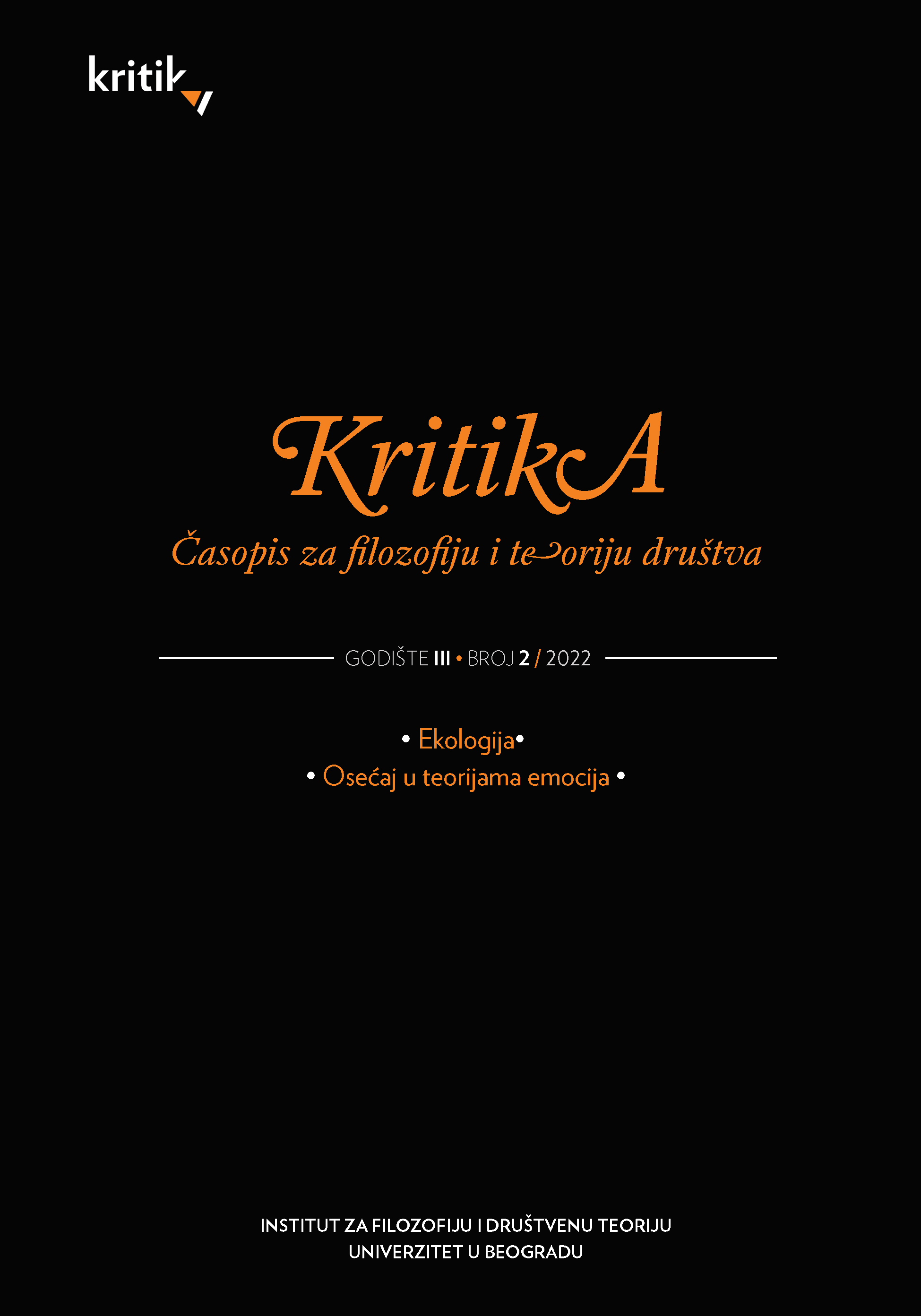O JADU I KUKANJU: OSMIŠLJAVANJE PATNJE KROZ LAMENT
MOANING AND WAILING: FINDING MEANING IN SUFFERING THROUGH LAMENTATION
Author(s): Aleksa RadovićSubject(s): Philosophy, Studies of Literature
Published by: Institut za filozofiju i društvenu teoriju
Keywords: wailing; lament; affect; André Green; ekphrasis; negative capability
Summary/Abstract: A psychological analysis must approach mournful speech, as an everyday but also historically and culturally ubiquitous phenomenon, through a comparative analysis of the phenomena of everyday wailing and aestheticized lamentation. The distinctions of different forms of wailing are primarily found in their respective relationships to the affective life of the individual. To this end, the investigation relies on psychoanalytic theories of representation and affect, especially those found in the work of A. Green, and his contribution to the psychoanalytic understanding of affectivity in general psychic life. It is shown that whining and wailing can be used as an authentic description of the world that is experienced, and as a testament to what is meaningful and authentic from the perspective of the lamenting subject. On the other hand, the inability to face the encroaching plurality of meaning also leads to the perpetuation of whining, but now as a defensive structure. In that case, lamenting speech, instead of testifying the authentic experience, serves as a cover or a screen, as the possible meaning presents the subject with something he is not ready to acknowledge. The next part of the paper deals with the rhetorical foundations of both modalities of mournful speech, analyzing them through the concept of ekphrasis (ancient rhetorical descriptions of the work of visual art). For the wailing subject, the speech serves as a description of a world that should be, and the suffering is a consequence of the disparity between the real and the world that is longed for. The question of lamenting effects of speech will be further explored through the analysis of the poetic term negative capability, invented by the poet J. Keats and used throughout the work of the psychoanalyst W. Bion. Because of the necessary ontological lack underlying every distressing experience, the negative function in speech proves necessary for an authentic description of loss and frustration. The paper ends with a consideration of different forms of lamenting attitudes toward the fateful state of affairs, as well as their consequences, through a comparative analysis of the characters in two well-known plays by William Shakespeare. Hamlet and Edgar are taken as representatives of two different ways of engagement with the tragic destiny (using the ideas put forward by Y. Bonnefoy), clearly seen through the use of two different concepts in their respective speeches: for Hamlet, the answer to the unchangeable destiny was readiness, while for Edgar it was ripeness.
Journal: Kritika: časopis za filozofiju i teoriju društva
- Issue Year: 3/2022
- Issue No: 2
- Page Range: 357-376
- Page Count: 21
- Language: Serbian

